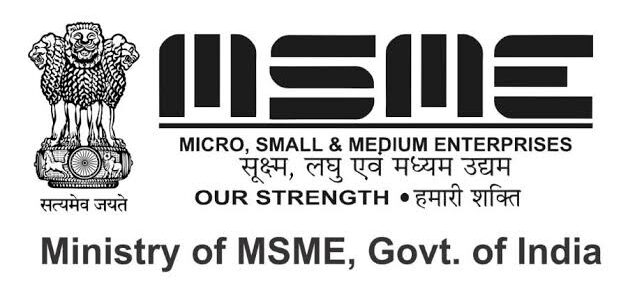A Public Limited Company is a type of business entity that offers limited liability to its shareholders and is recognized as a separate legal entity. It is governed by the Companies Act, 2013, and can be either a Private Limited Company (PLC) or a Public Limited Company (Ltd). Below is a comprehensive overview of various aspects of a Limited Company in India:
1. Definition and Nature
- Definition: A Limited Company is a company where the liability of its members or subscribers is limited to what they have invested or guaranteed to the company.
- Nature: It is a separate legal entity, can own property, sue or be sued, and has perpetual succession.
2. Types of Limited Companies
- Private Limited Company (PLC): Restricts the right to transfer its shares, limits the number of its members to 200, and prohibits any invitation to the public to subscribe to its shares.
- Public Limited Company (Ltd): Does not have restrictions on the transfer of shares, must have at least 7 members, and can invite the public to subscribe to its shares.
3. Members Required
- Private Limited Company: Minimum of 2 and a maximum of 200 members.
- Public Limited Company: Minimum of 7 members with no maximum limit.
4. Registration
- Mandatory: Registration is mandatory under the Companies Act, 2013.
- Process:
- Digital Signature Certificate (DSC): Obtain DSC for all directors.
- Director Identification Number (DIN): Obtain DIN for all directors.
- Name Approval: Apply for name approval of the company through the MCA portal.
- Incorporation Form: File Form SPICe+ (Simplified Proforma for Incorporating a Company Electronically) with the Registrar of Companies (RoC) along with the Memorandum of Association (MOA) and Articles of Association (AOA).
- Certificate of Incorporation: Once approved, the RoC issues a Certificate of Incorporation.
To get your Limited Company registration, you can contact WynSwell for all such services. We offer pan-India services to ensure your business complies with all necessary regulations.
5. Licenses
- Trade License: Required from the local municipal corporation.
- GST Registration: Mandatory if the annual turnover exceeds ₹40 lakhs (₹20 lakhs for North-Eastern states).
- Professional Tax: Required if the business employs staff.
- FSSAI License: Required if the business is involved in food-related activities.
- Other Licenses: Depending on the nature of the business, additional licenses may be required.
6. Taxation
- Income Tax: Companies are taxed at a flat rate of 25% for companies with a turnover up to ₹400 crores, and 30% for companies with a turnover above ₹400 crores, plus surcharge and cess as applicable.
- Dividend Distribution Tax (DDT): Not applicable after its abolition in Budget 2020.
- GST: If registered under GST, the company must comply with filing monthly/quarterly returns and annual returns.
7. Audit
- Mandatory: Audit of financial statements is mandatory irrespective of the turnover.
- Tax Audit: Required if turnover exceeds specified limits or if the business opts for presumptive taxation and income claimed is lower than the presumptive income.
8. Accounting Rules
- Bookkeeping: Maintain accurate records of all financial transactions.
- Financial Statements: Prepare Profit & Loss Statement, Balance Sheet, and Cash Flow Statement annually.
- Cash Flow Management: Crucial for the sustainability of the business.
- Filing Requirements: File annual financial statements and annual returns with the RoC.
9. Scope and Types
- Scope: Suitable for small to large-sized businesses, startups, and companies seeking limited liability protection with multiple shareholders.
- Types:
- Limited by Shares: Shareholders’ liability is limited to the unpaid amount on their shares.
- Limited by Guarantee: Members’ liability is limited to the amount they guarantee to contribute in case of winding up.
- Unlimited: No limit on members’ liability.
10. Banking Norms
- Separate Bank Account: Recommended to open a current account in the name of the company.
- KYC Norms: Banks require proof of identity, address proof, incorporation certificate, MOA, AOA, and PAN of the company.
11. Regulations
- Compliance with Companies Act: Adherence to the Companies Act, 2013.
- Labor Laws: Compliance if the business employs staff.
- Consumer Protection: Adherence to consumer protection laws.
- Environmental Regulations: Compliance with environmental norms if applicable.
Advantages
- Limited Liability: Shareholders’ liability is limited to their shareholding.
- Separate Legal Entity: The company is a separate legal entity distinct from its shareholders.
- Perpetual Succession: The company continues to exist even after the shareholders’ death or incapacity.
- Ease of Raising Capital: Easier to raise capital from investors and financial institutions.
Disadvantages
- Compliance Requirements: Higher compliance and regulatory requirements compared to other business structures.
- Public Disclosure: Financial statements and other information are public records.
- Cost of Formation: Higher cost of incorporation and compliance.
Conclusion
A Limited Company is suitable for small to large-sized businesses, startups, and companies seeking limited liability protection with multiple shareholders. It provides significant advantages in terms of liability protection, raising capital, and business continuity. However, the higher compliance requirements and public disclosure norms must be carefully considered.
For assistance with your Limited Company registration and other compliance needs, contact WynSwell. We offer comprehensive services across India to help you focus on growing your business without worrying about compliance issues.












